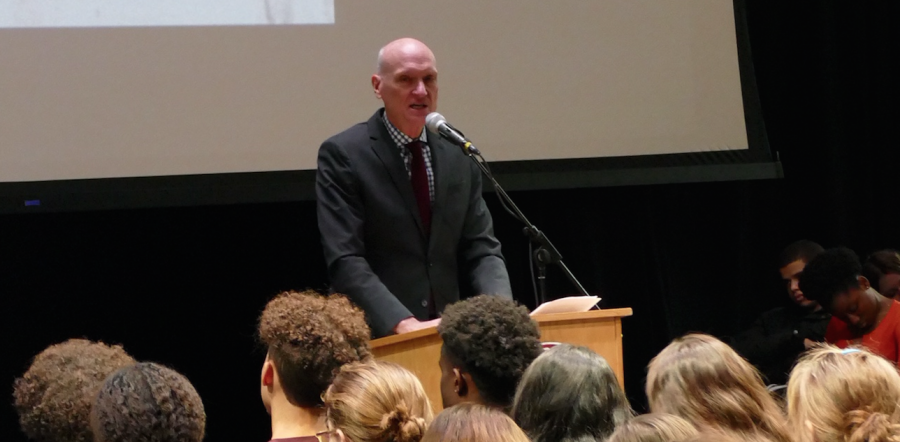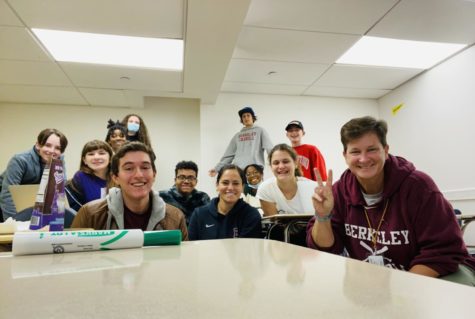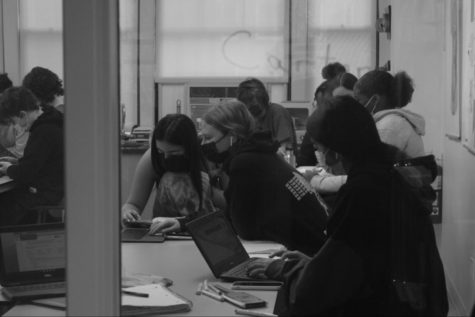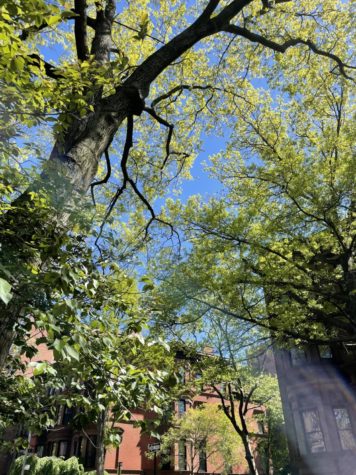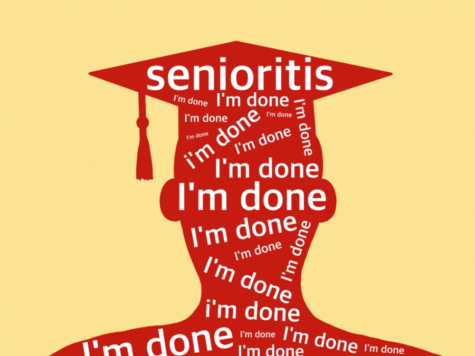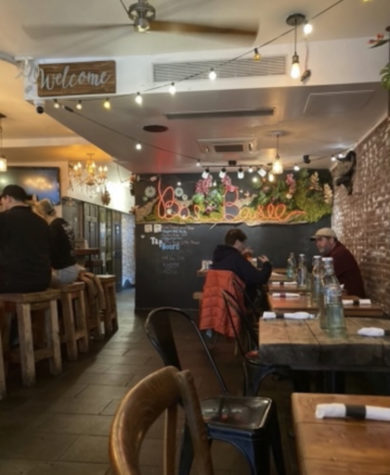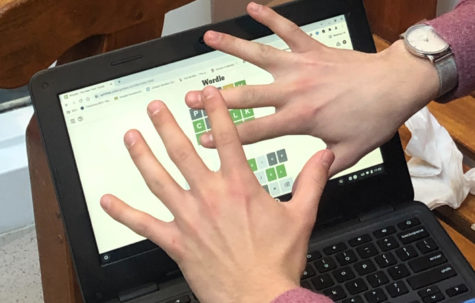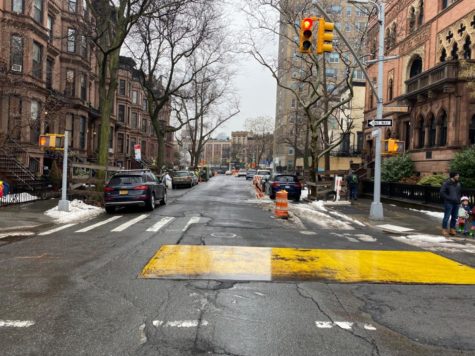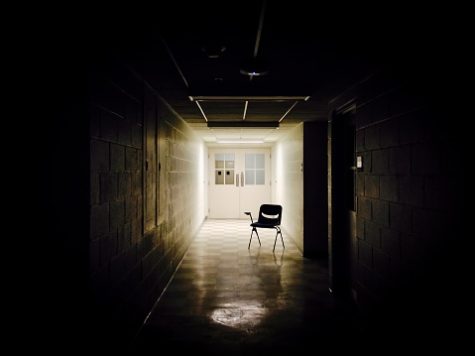Students Respond to Racism at BC
Over the course of the first semester, a group of Upper School freshpeople was subjected to racist verbal attacks and racist caricatures by a white freshperson. On October 30th, the same white student physically assaulted a black freshperson. On November 28th, the administration was made aware of the incident and the white student was asked to leave the school. On December 3rd, following a meeting with student leaders, the student body was officially notified of what had occurred during a schoolwide assembly. This incident initiated a larger dialogue about the racism that exists at Berkeley Carroll.
As a publication meant to be “the student voice of the Upper School,” we wanted to provide a written forum to open up the floor to as many people and voices as possible. In December, The Blotter sent out a “Race at BC: Write-In” Google Form to the Upper School. Excerpts from the three submissions we received are quoted throughout this article.
In response to the racism happening at Berkeley Carroll, over the course of December, the school organized assemblies, advising group meetings for debriefing and reflection, people of color affinity group meetings, and white ally meetings. On white allyship, an anonymous student submitted the following thoughts:
“While it is necessary for people to show support for students of color at this school, it is simply disrespectful for white ‘allies’ to act as if they care about ongoing events and refuse to hold others accountable for their actions just because they don’t feel pressured to attend meetings about the injustices people of color face at this school. We cannot hop into the shower and wash off the color of our skin or our other physical features—this is who we are, and will always be. Because of this, it is crucial that said ‘allies’ realize that agreeing with others’ opinions of ongoing events, and then sitting pretty while benefiting from systemic racism (thus refusing to face the elephant in the room) is not active allyship—it’s blatant disregard for what we have to experience daily simply for being who we are.”
On December 12th, an all-school speakout was held. During the speakout, which lasted for over two hours, many students of color took the opportunity to share their experiences of racism at Berkeley Carroll. These students expressed how they are unsafe and unwelcomed, how they are unable to thrive, how they are marginalized, and how they are micro and macro-agressed. Kelsey D. ‘22 shared:
“I feel as if the white people in this school only know the basic ways in which ‘how not to be racist.’ Many of the students here think that as long as they aren’t saying the N-word then they’re not racist, but the truth is that racism is deeper and more complicated than that. I feel as if some of the things that are very disrespectful to people of color, the white kids do without knowing how we perceive what they say and do. And I’m not saying it’s their fault because many of the kids who these things are being done to aren’t speaking up because they don’t want to be seen as that kid who is mad at everything people do so we are silenced due to fear of being seen as aggressive or threatening. Now, I feel like we can slowly start to make these issues deescalate by simply being respectful to one another and being mindful of what we say and do. And don’t make jokes which you know are not appropriate especially if it’s something which is rooted in racial stereotypes or has a past of something which people take very personal[ly]. It makes people feel uncomfortable, and it sends the message that you don’t take these issues seriously or that you don’t care.”
Black students especially expressed the pressure they feel to censor their blackness and hide their full selves. Kelsey D. ‘22 added:
“I hate how whenever people of color suggest we do something that is cultural, people say ‘save it for Black History Month.’ Like what kind of message does that send to us when white people say that? It’s as if you guys don’t think our history is important and that we are not validated unless it’s Black History Month, and especially since we’re in a school where it’s predominantly white it belittles us and makes us feel as if we are just statistics.”
Asian, Latinx, and Multiracial students expressed that they did not always feel comfortable or included in student spaces designated as being for students of color. Some of these students expressed feeling like their experience was not the same as the narrative being told and being unable to highlight that difference. Students also shared experiences of antisemitism, homophobia, and transphobia. On microaggressions and transphobia, Elliot M. ‘21. shared the following:
“[Microaggressions] are seen as a joke, partially because of the way the administration taught us about them, and partially as a fault of the term itself. The administration used semi-comedic YouTube videos to teach us about them, infusing the idea with levity from the get-go. The term itself unintentionally belittles these incidents, when in reality they are only ‘micro’ to the aggressor and can feel major to the victim. I know this first hand, as a trans guy. Getting misgendered, called by my birth name, made fun of indirectly for changing my pronouns happens frequently, and is cumulative and depressing. Most of the people who do this don’t mean any harm by it and don’t know it’s wrong, but to me, it feels like a punch to the gut. It is in no way ‘micro’ and calling it that trivializes the pain felt by marginalized groups. I don’t have a replacement term, but I think we should find one.”
For some white students, the speak out was the first time they realized the difficulties their peers of color faced by attending a predominantly white private institution like Berkeley Carroll. Elliot M. ‘21 shared the following thoughts on white students’ reaction to being exposed to racism:
“It’s been exceptionally discouraging to see how, when confronted on their racism, many white students feel owed a full-length lecture from the POC student who called them out. I want to say to my fellow white students that we are not owed the time and energy. I also want to say that we can correct each other. White folks are capable of recognizing racism. On that note, I do think you should be mindful to speak out but not over, and to be wary of being too confrontational. If you attack a person over a joke, they’ll get defensive and refuse to change. Be polite and constructive if you can (it can be tiring, I know).”
As we move into 2019, The Blotter hopes to create a platform for authentic dialogue about race and racism at BC to continue. To do this effectively, we need to hear from you, the students. This is only a starting point for dialogue on The Blotter. We welcome all kinds of contributions, including suggestions for articles, letters to the Editors, feedback on how we are doing, and of course, content! Contributing articles is a great way to ensure that your ideas are represented in our publication. Take advantage of this platform and let our school community know what you have to say.
Here’s how to do it:
- Email the Editors at [email protected] and [email protected]
- Talk to any member of the Blotter staff in person
- Leave a note (it can be anonymous) in the envelope on the Blotter bulletin board in Room 144
- Come to co-curricular in Room 144
- Join our Google Classroom with the code: virq0v

